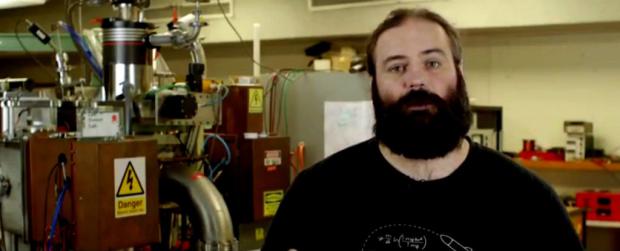
Breaking News
How Do Dumb People or Corrupt People Get Elected to Top Positions?
 Brand New Solar Battery With THIS Amazing Feature! EG4 314Ah Wall Mount Review
Brand New Solar Battery With THIS Amazing Feature! EG4 314Ah Wall Mount Review
 This New Forecast Just Got WAY Worse...
This New Forecast Just Got WAY Worse...
 S3E4: The Freedom Movement Funded Its Own Prison
S3E4: The Freedom Movement Funded Its Own Prison
Top Tech News
 The day of the tactical laser weapon arrives
The day of the tactical laser weapon arrives
 'ELITE': The Palantir App ICE Uses to Find Neighborhoods to Raid
'ELITE': The Palantir App ICE Uses to Find Neighborhoods to Raid
 Solar Just Took a Huge Leap Forward!- CallSun 215 Anti Shade Panel
Solar Just Took a Huge Leap Forward!- CallSun 215 Anti Shade Panel
 XAI Grok 4.20 and OpenAI GPT 5.2 Are Solving Significant Previously Unsolved Math Proofs
XAI Grok 4.20 and OpenAI GPT 5.2 Are Solving Significant Previously Unsolved Math Proofs
 Watch: World's fastest drone hits 408 mph to reclaim speed record
Watch: World's fastest drone hits 408 mph to reclaim speed record
 Ukrainian robot soldier holds off Russian forces by itself in six-week battle
Ukrainian robot soldier holds off Russian forces by itself in six-week battle
 NASA announces strongest evidence yet for ancient life on Mars
NASA announces strongest evidence yet for ancient life on Mars
 Caltech has successfully demonstrated wireless energy transfer...
Caltech has successfully demonstrated wireless energy transfer...
 The TZLA Plasma Files: The Secret Health Sovereignty Tech That Uncle Trump And The CIA Tried To Bury
The TZLA Plasma Files: The Secret Health Sovereignty Tech That Uncle Trump And The CIA Tried To Bury
This physicist just got the all-clear to test his record-breaking ion drive in space

An Australian rocket scientist has built a prototype ion drive that could one day power a return trip to Mars using recycled space junk for fuel.
Recent PhD graduate Paddy Neumann made headlines last year when his ion drive obliterated NASA's fuel efficiency record, and just last week, he signed a deal with Europe's biggest aerospace company, Airbus Defence & Space, to launch it to the International Space Station for testing.
The partnership was announced last Thursday at the International Astronautical Congress in Mexico, and marks the first time that Airbus has taken on a customer for the external research platform it plans to install on the International Space Station (ISS) by the end of 2018.
"We've been testing on Earth in a vacuum system to simulate space, but it's a small vacuum system, so this will be the first real test of a true space environment with on-board monitoring of the system," Neumann's co-inventor at the University of Sydney, Marcela Bilek, told ABC News.

 Nano Nuclear Enters The Asian Market
Nano Nuclear Enters The Asian Market


